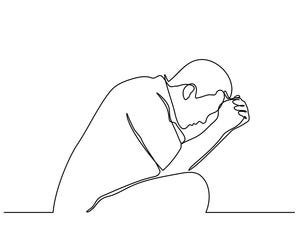The Greeks had a phrase: pathei mathos. It translates to “learning through suffering”. In it is contained the idea that -suffering-, an umbrella term that encapsulates all that causes us pain and misery, upset, sickness and death, can be beneficent; a didactic force that has sometimes been explained with the use of analogies of creative violence. A gem being polished. A marble block shaped with careful blows. A crucible in which intense, potentially destructive heat is concentrated. Yet as a storm possesses and releases enormous energy and havoc onto its immediate environment, and stone hit with an uncoordinated hammer blow shatters shapelessly, the crucible boils over and is ruined, so undirected force or suffering is ruinous. Suffering is only a learning opportunity when it is recognised as such, otherwise it will only damage.
Suffering is impermanent in the way that learning is continuous. One attempts to break, whilst the second builds. One of the greatest pitfalls that assault the person who is going through a period of suffering is the sense of almost total isolation and even more dangerously the idea that “no one knows what its like to go through this/to be me”. As Solomon famously said, and experience consequently teaches many people, is that there is nothing new under the sun. Arguably, no human experience is entirely unique, and whilst some may take this a disquieting sense of un-individuality, the perhaps more correct approach is to take it as a comfort: you are not alone.
It is this sense of the great collectiveness of human suffering and experience that has so overwhelmed many who put their minds to the subject. The finality of the fact that we as an individual live, and is forced to experience life, a state of being that despite its sheer ugliness, is dwarfed by our intrinsic fear of death. Such things have flocked as many people to religion as atheism, as one camp seeks meaning and the other sees none.
They say that to live is to suffer, and many philosophical schools have sought to answer the inevitable question that arises from such a statement: how can a state of being that exists whilst unable to avoid the experience of near continuous suffering become bearable, even satisfying? To Buddha, to escape durkkha, one must remove expectations, attachments and desires. Without the burden of expectation, a person can’t be disappointed. To expect is to suffer, as the person feels like the thing that afflicts them is contrary to an ideal alternative reality that they feel they are entitled to.
Such sentiments are echoed in other philosophies. The Stoics saw suffering as something you should see as preordained for you. In that way, they see it as inescapable. For you it was fated, for you it was prescribed, and it’s up to you to weather its storm, and come out the other side intact and content. In this way, one of the greatest dangers in suffering is anger, the sense of injustice at events inflicted upon a person who didn’t deserve such things. Anger will topple the progress a person has made in the midst of their suffering, and its continued presence will act as soft soil, that nothing will be built on. Acceptance is its antidote, echoed in a formulation in the Frankl logotherapy school of thought:
“Can you do anything about it? No? Then relax.”
“Can you do anything about it? Yes? Then relax.”
A curious facet of the experience of suffering is the problem of the θάνατος του εγώ: the death of the ego. Jung saw the ego as the sense of continued personal identity, and it is this very thing which becomes problematic to an ego subjected to extreme distress. On one hand, the death of the ego as pertaining to a loss of the sense of entitlement to health, wealth and happiness, however those things look to that person, and affronted personal injustice when they are inevitably not received, is of benefit. On the other, extreme suffering can lead to an ego, not so much as dying, as being forcibly strapped down and slaughtered. Remove the person and you remove the pain. Combat-experienced individuals disappear in the thousand-yard stare, the abused child is nonreactive to screams and blows, as their minds disassociate and disincorporate.
All of this is to say that suffering, although a collective occurrence, is nevertheless an individual experience. You only have one life that you can live, and only one you can lose. In this time, your suffering is all but guaranteed. It is inescapable, as it is impermanent. Suffering needs not hold ultimate power over an individual’s satisfaction in life, nor their worth. Fear is a natural response to the potential, and presence, of suffering, yet if it can be used to teach us, then it is nothing to fear.



